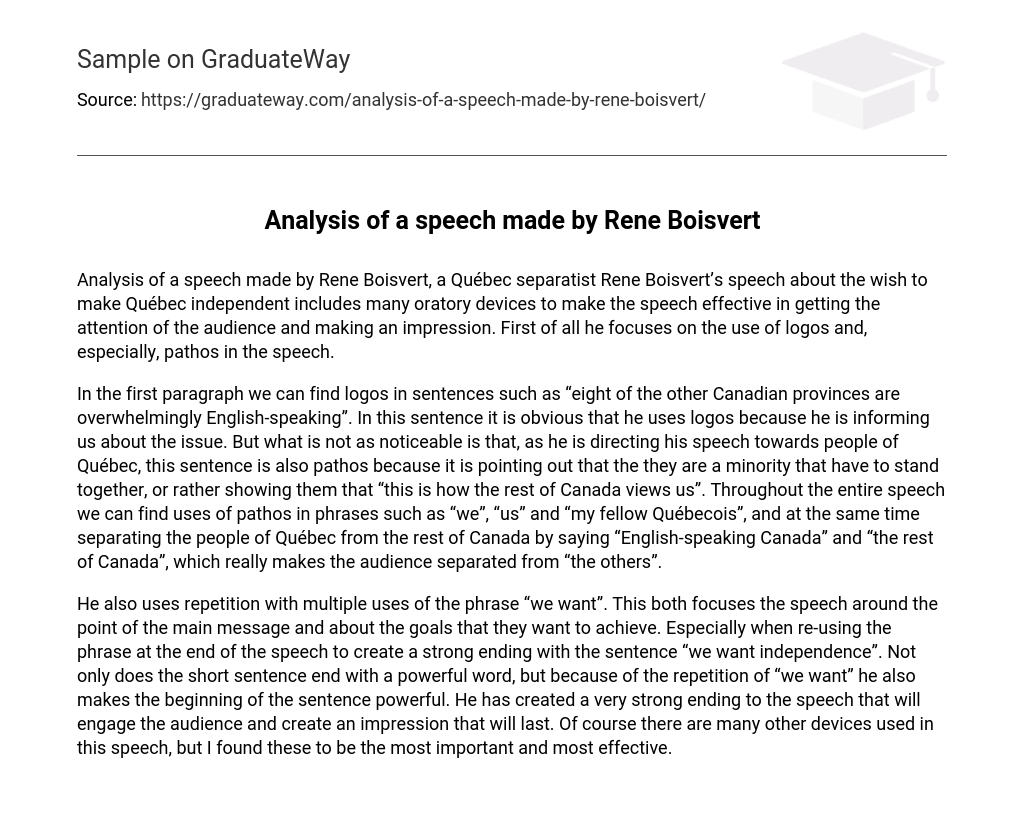Analysis of a speech made by Rene Boisvert, a Québec separatist Rene Boisvert’s speech about the wish to make Québec independent includes many oratory devices to make the speech effective in getting the attention of the audience and making an impression. First of all he focuses on the use of logos and, especially, pathos in the speech.
In the first paragraph we can find logos in sentences such as “eight of the other Canadian provinces are overwhelmingly English-speaking”. In this sentence it is obvious that he uses logos because he is informing us about the issue. But what is not as noticeable is that, as he is directing his speech towards people of Québec, this sentence is also pathos because it is pointing out that the they are a minority that have to stand together, or rather showing them that “this is how the rest of Canada views us”. Throughout the entire speech we can find uses of pathos in phrases such as “we”, “us” and “my fellow Québecois”, and at the same time separating the people of Québec from the rest of Canada by saying “English-speaking Canada” and “the rest of Canada”, which really makes the audience separated from “the others”.
He also uses repetition with multiple uses of the phrase “we want”. This both focuses the speech around the point of the main message and about the goals that they want to achieve. Especially when re-using the phrase at the end of the speech to create a strong ending with the sentence “we want independence”. Not only does the short sentence end with a powerful word, but because of the repetition of “we want” he also makes the beginning of the sentence powerful. He has created a very strong ending to the speech that will engage the audience and create an impression that will last. Of course there are many other devices used in this speech, but I found these to be the most important and most effective.





